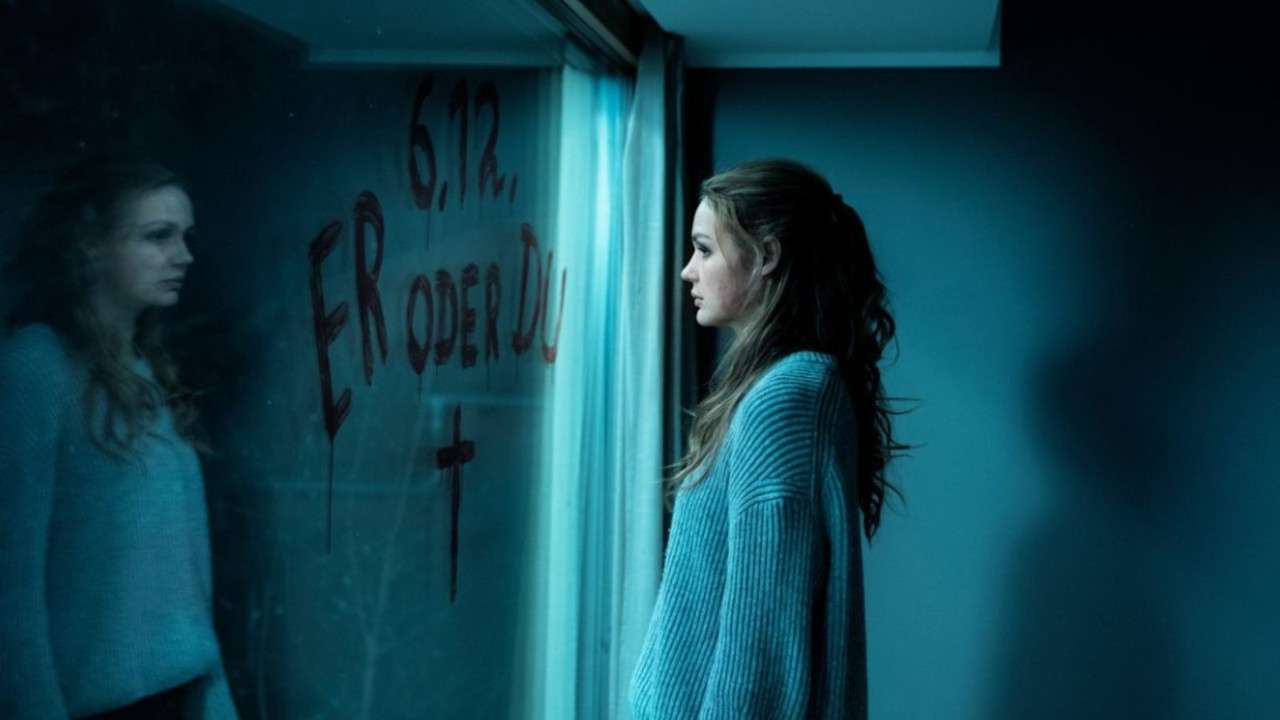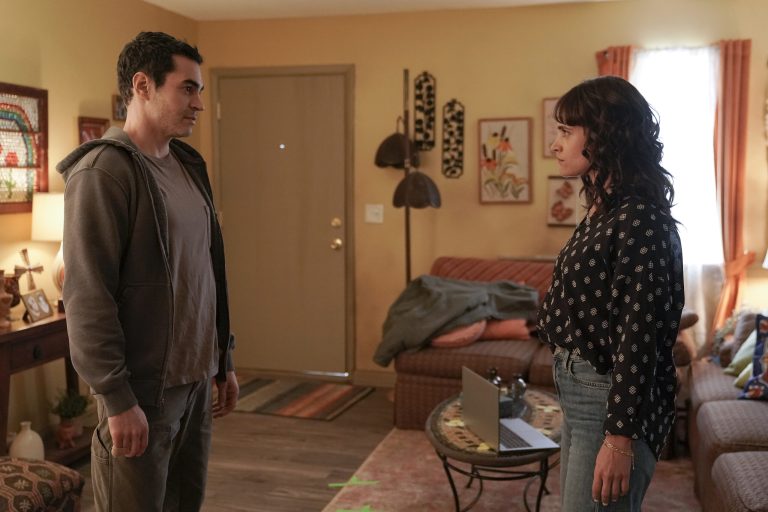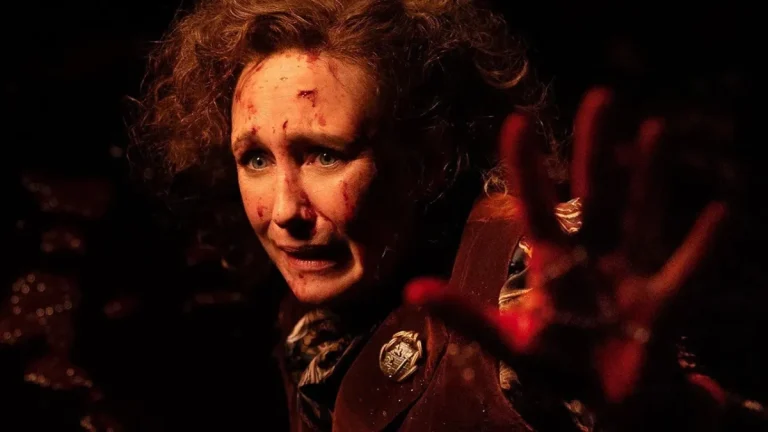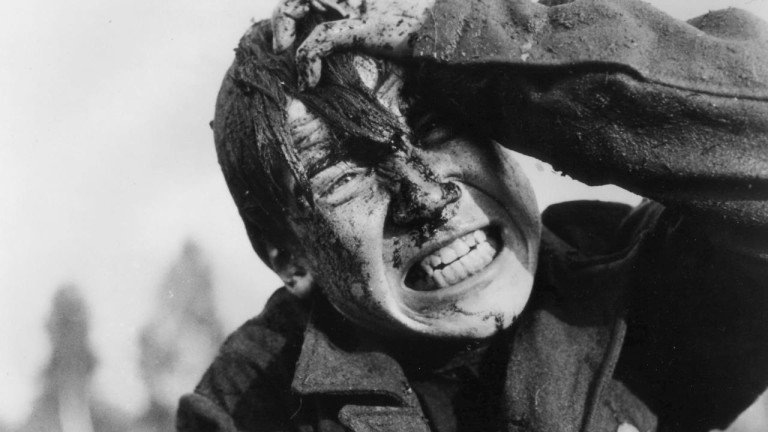Spoilers Ahead
The Calendar Killer (2025) Plot Summary and Movie Synopsis:
How was the Relationship between Klara and Martin?
Klara and Martin’s relationship is deeply toxic and defined by fear, manipulation, and abuse. Martin, despite his position as secretary of state, is revealed to be a cruel and abusive husband. He inflicts physical harm on Klara and finds satisfaction in her suffering. His behavior creates a dynamic where Klara feels trapped, unsupported, and vulnerable, especially when she needs him the most.
Klara’s history of mental illness becomes a tool for Martin and others to dismiss her claims, even when they seem credible. Her suspicion about the “calendar killer” targeting her is heightened by her isolation. The photo and blood-written message she discovers in the garage are chilling. Yet Martin’s refusal to take her seriously exacerbates her anxiety. His disbelief may stem from his arrogance, prioritizing his public image over her safety. However, his dismissive attitude also aligns with his abusive tendencies, suggesting he sees Klara’s fears as inconsequential.
Jules, working for a helpline, becomes the only person who listens to Klara without judgment. His suspicion that she might be a victim of domestic abuse is pivotal. It encourages Klara to share her traumatic experiences, shedding light on the extent of Martin’s cruelty. Jules’ empathetic and observant nature starkly contrasts with Martin’s cold indifference, emphasizing Klara’s desperation for someone to believe her.
What did Martin do to Klara?
Martin’s treatment of Klara is abusive, controlling, and deeply dehumanizing. Despite being her husband, he repeatedly strips her of agency and dignity, cementing his position as a figure of authority and fear in her life. His actions range from coercive control to outright physical and psychological violence, pushing Klara to the brink of survival. Martin forces Klara to abandon her successful career as a lawyer to become a full-time mother. While presented under the guise of family values, this decision is clearly imposed, robbing Klara of independence and tying her identity entirely to her role in the household. His reaction at the anniversary dinner, when a former colleague praises Klara’s professional past, reveals his insecurity and the need to dominate every aspect of her life. Martin views Klara not as a partner but as someone he must control.
Martin’s true cruelty unfolds during the anniversary celebration. Taking her to an exclusive club, he subjects Klara to unimaginable humiliation and violence. The club’s sinister activities, where men inflict pain on women for pleasure, go beyond patriarchal dominance into outright sadism. Worse, Martin forces Klara into this ordeal without her consent. He ties her up and lashes her along with other men. This horrifying act underscores his complete disregard for her as a human being and his twisted satisfaction in breaking her spirit.
Klara’s actions are born out of desperation and survival. She endures Martin’s violence and oppression because she feels trapped, with no safe avenue for escape. Her decision to flee to a cabin, despite it being Martin’s property, shows her limited options and mental exhaustion. Jules’ urging to leave Martin resonates with her. But her immediate focus remains on avoiding the killer, illustrating her layered fears: one from her husband and the other from the external threat.
Who is the Killer?

The killer is Jules, the seemingly empathetic helpline worker who hides his sinister motives behind a facade of compassion. While he initially appears to support Klara and other women in distress, his actions reveal a dangerous obsession rooted in personal trauma and distorted moral reasoning. Jules murders as part of his twisted mission to “liberate” abused women. His justification stems from a belief that women trapped in toxic relationships must either kill their abusers or face death themselves. For Jules, staying with an abuser is an unforgivable act, stripping the woman of her worth in his eyes. This warped ideology, however, reflects not genuine concern for the victims but a projection of his unresolved trauma and guilt.
Jules’ backstory sheds light on his motivations. His wife, Diana, endured years of trauma caused by her abusive father. Unable to cope with her pain, she eventually took her own life. Tragically, this coincided with a fire hazard at their home, leading to the deaths of Jules’ children. Consumed by grief and blame, Jules concludes that Diana’s suffering, and by extension, her inability to heal, was the root cause of his loss.
This flawed reasoning drives him to take extreme measures, believing he is preventing other women from meeting the same fate as Diana. Despite his claims of helping women, Jules’ actions are ultimately self-serving. His mission is less about rescuing others and more about alleviating his own guilt and anger. His manipulative tendencies surface in the way he centers himself in every situation, framing his murders as a redemptive quest while disregarding the agency and wishes of the women he claims to help.
This is evident in his insistence on control: if the women refuse to kill their abusers, he assumes the role of judge, jury, and executioner. Jules’ father attempts to intervene, warning Klara and trying to protect her from his son’s deranged actions. However, Jules’ manipulation and Klara’s heightened fear lead her to misinterpret the older man’s intentions, showcasing how deeply Jules’ deceit has shaped the narrative.
The Calendar Killer (2025) Movie Ending Explained:
What does Klara do to Show Martin’s True Color to the World?
After being saved by Martin from Jules, Klara strategically records her conversation with Martin inside the car, capturing his candid admission of abuse. During the heart-to-heart, Martin blames Klara for “provoking” his violence, a classic tactic of abusers to justify their actions. While enduring his gaslighting and physical abuse during the car ride, Klara carefully ensures that his words are preserved as undeniable proof of his true character.
This recording becomes her weapon to dismantle the façade Martin has maintained as a respectable secretary of state and a “loving” husband. Klara chooses the perfect moment to expose Martin during his press conference. Positioned in front of the media and the world, Martin attempts to paint himself as a victim of a “traumatizing attack” alongside his wife. However, Klara’s recording interrupts his performance, laying bare his despicable behavior and lies. By revealing the truth when Martin is at his most vulnerable, Klara ensures that his downfall is swift and irrevocable.
Klara’s motivations are driven by survival and justice. Having endured Martin’s abuse for years and knowing his position of power shields him from accountability, she uses the only tool available to her — his own words. Her decision to expose him publicly reflects her understanding that private pleas for justice would likely be dismissed, given his influence and her history of mental illness.
The exposure leads to Martin’s conviction, with the court sentencing him to five years in jail. The recording not only ensures that Martin faces consequences but also liberates Klara from his control. The film closes with a glimpse of a free and happy Klara, symbolizing her reclaiming her life and agency. Her courage in exposing Martin represents a victory over years of oppression, showing her determination to survive and protect herself and her daughter.





![Flee [2021] Review: A Gripping Tale of the Pursuit to Find a Home](https://79468c92.delivery.rocketcdn.me/wp-content/uploads/2022/02/Flee-2021-768x320.jpg)
